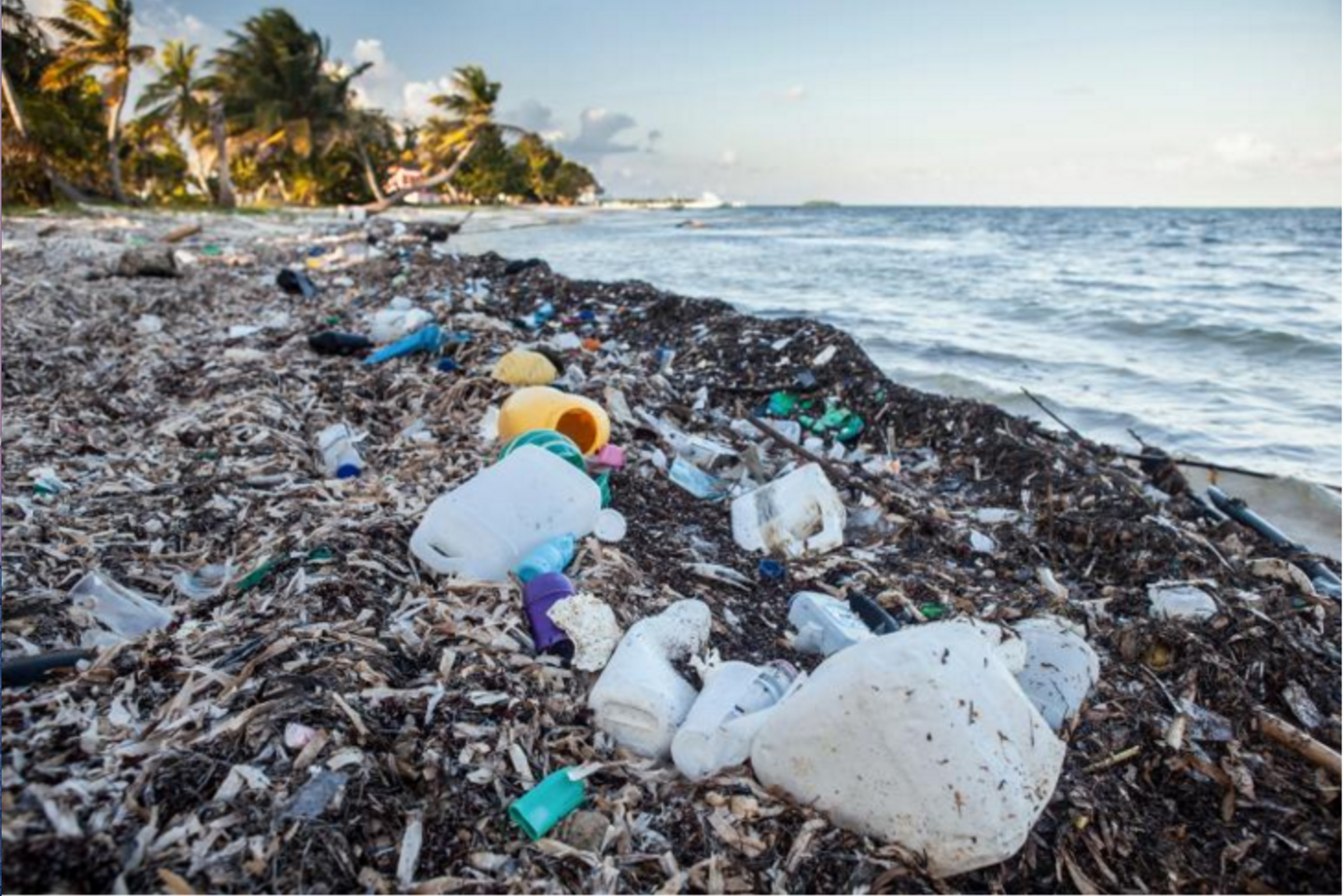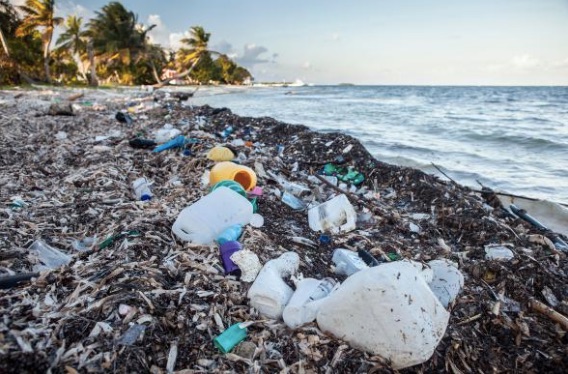News
Trash to Gold: This Company Plans to Turn Plastic Ocean Trash Into Usable Fuel

On a sunny afternoon in September, a barge roughly the size of a dump truck pulls into Delta, British Columbia, piled to overflowing with marine debris. Foam, plastic bottles, frayed rope—all of it hand-picked by dozens of volunteers from Vancouver Island and stashed inside 200 giant white bags. “Too bad that ain’t gold,” a bystander remarks from the dock. “You just wait,” replies Chloé Dubois, standing on deck, “one day it will be.”
Her sentiments might be felt everywhere, but perhaps overwhelmingly in the U.S.. Consider these shocking statistics:
Garbage
 4.4 pounds
4.4 pounds
Trash the average American produces daily (EPA)
1,600 pounds
Trash the average American produces annually. With the garbage produced in America alone, you could form a line of filled-up garbage trucks that reach the moon. (EPA)
72 million tons
Amount of containers and packaging in 2009 in the U.S. municipal solid waste stream or MSW. Packaging makes up 30 percent of America’s trash — the largest portion of MSW generated. (EPA)
60 percent
Amount of trash that can be recycled (U.S. Department of Labor)
13 percent
Amount of mainstream waste that’s actually recycled (Clean Air Council)
What if you could do more than just clean the oceans of the approximately 5.25 trillion pieces of plastic trash in our oceans? What if you could turn a profit by making it into something useful, and cleaning up the environment at the same time, all while providing a needed commodity?

It’s already been done with the help of the Japanese Government. Ocean Legacy was given a CAN $1 million grant to help clean up Tsunami debris off British Columbia’s Coast.
A non-profit organization called the Ocean Legacy Foundation, oddly, has plans to mitigate ocean waste and turn one man’s trash – or several millions’ – into treasure, all over the world.
The Foundation has a 5-point plan to help get rid of plastic debris that is choking ocean life:
- Locate pollution hotspots with a user-generated map of shoreline debris.
- Initiate hotspot cleanup expeditions, mobilizing local organizations to help do the dirty work.
- Recycle as much of the ocean plastic waste as they can into a usable fuel with a custom plastic to fuel conversion machine.
- Create a global ocean directory that helps users locate ocean related organizations around the world.
- Communicate with communities and groups to help the process of ocean clean up start all over again.
Many people have questions about how you can turn plastic oil. The Foundation fields these inquiries as such:
- What kind of plastic can you upcycle into usable fuel?
Plastics that can be made into fuels are polypropylene (PP), polyethylene (PE), and polystyrene (PS). PET and PVC plastics cannot be upcycled into fuel.
- What kind of fuels do the plastics become?
Upcycled plastics can be made into kerosene equivalent, gasoline equivalent, diesel equivalent, and heavy oil (which the Foundation calls mixed oil.)
The machine that does all of this could fit in most people’s garage. Check it out:
Typos, corrections and/or news tips? Email us at Contact@TheMindUnleashed.com
